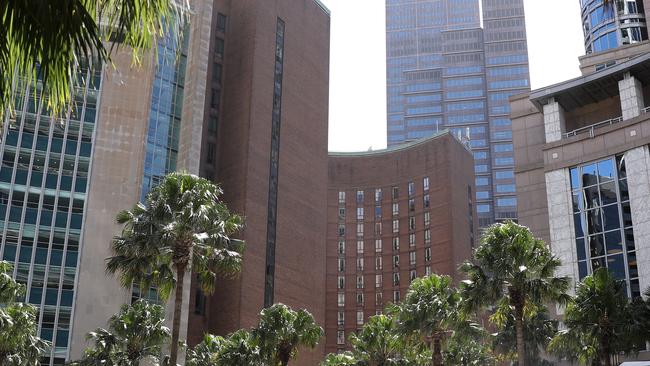Coronavirus: Officials baffled by infected Sydney hotel quarantine guard
Experts say guard who contracted COVID-19 while working in NSW hotel quarantine has a much reduced chance of passing it on because he was vaccinated.

Medical experts say the security guard who contracted COVID-19 while working in NSW hotel quarantine has a much reduced chance of passing the virus on to anyone else because he has been vaccinated.
While it’s not yet clear to what extent vaccination can interrupt transmission of COVID-19, there is emerging evidence that those who have been vaccinated have a lower viral load if they do catch the virus, and are therefore much less infectious.
NSW recorded no new cases of COVID-19 on Monday, raising hopes the infected security guard may not transmit the virus to his close contacts or anyone else.
The guard recorded a positive test on Saturday night and authorities believe he was infected during a shift at the Sofitel hotel on March 6. He has been infected with the more infectious UK strain of the virus.
NSW Chief Health Officer Kerry Chant said on Monday genomic sequencing had revealed a match between the man’s sample and that of an infected traveller who was completing a period of hotel quarantine at the Sofitel.
Health authorities remain baffled at how the guard contracted the virus because the infected traveller had not even opened his hotel room door when the guard was on duty.
“This investigation has some uncertainties as to the exact mechanism of transmission and obviously I’d be a lot more comfortable if I knew that specifically, so we are keeping our options open and exploring a range of possibilities,” Dr Chant said.
The guard, whose infection was asymptomatic, received his first dose of the Pfizer vaccine on March 2. Dr Chant said blood tests had revealed his body had exhibited “some response” to the vaccine, but given he received only one dose less than two weeks prior to infection, he would not have had full protection.
It’s unclear how effectively vaccines will prevent hotel quarantine workers from catching the virus from infected travellers.
A recent UK study found there was a four-fold decrease in the risk of asymptomatic infection among people who received a single dose of Pfizer vaccine. Another study recently published in the journal Clinical Infectious Diseasesfound that mRNA vaccines decreased the risk of infection by 80 per cent after a single dose.
The protection the vaccine offers does not reach its fullest extent until about three weeks after vaccination, said infectious diseases physician Sanjaya Senanayake. “As your immune system responds to the vaccine, the efficacy is going to improve with time,” Professor Senanayake said.
“In terms of getting sick from the virus, the guard had a significantly reduced chance because he’d taken the vaccine.
“The chance of vaccinated people getting sick after their second dose of vaccine will be very, very low with the Pfizer vaccine. We know it’s around 95 per cent efficacious. And it hasn’t been proven yet, but they’re probably less likely to be able to infect other people, even if they get infected themselves. Even if they are affected, they’ll hopefully have less virus and be less infectious in general.”
Meanwhile NSW reached its first target on the vaccine rollout, with more than 35,000 people vaccinated in the first three weeks.
Australia has set a target to have four million people vaccinated by April 26. More than six million people, including those aged over 70 and those with underlying health conditions, will begin to be vaccinated during the next phase of the rollout beginning on Monday.




To join the conversation, please log in. Don't have an account? Register
Join the conversation, you are commenting as Logout